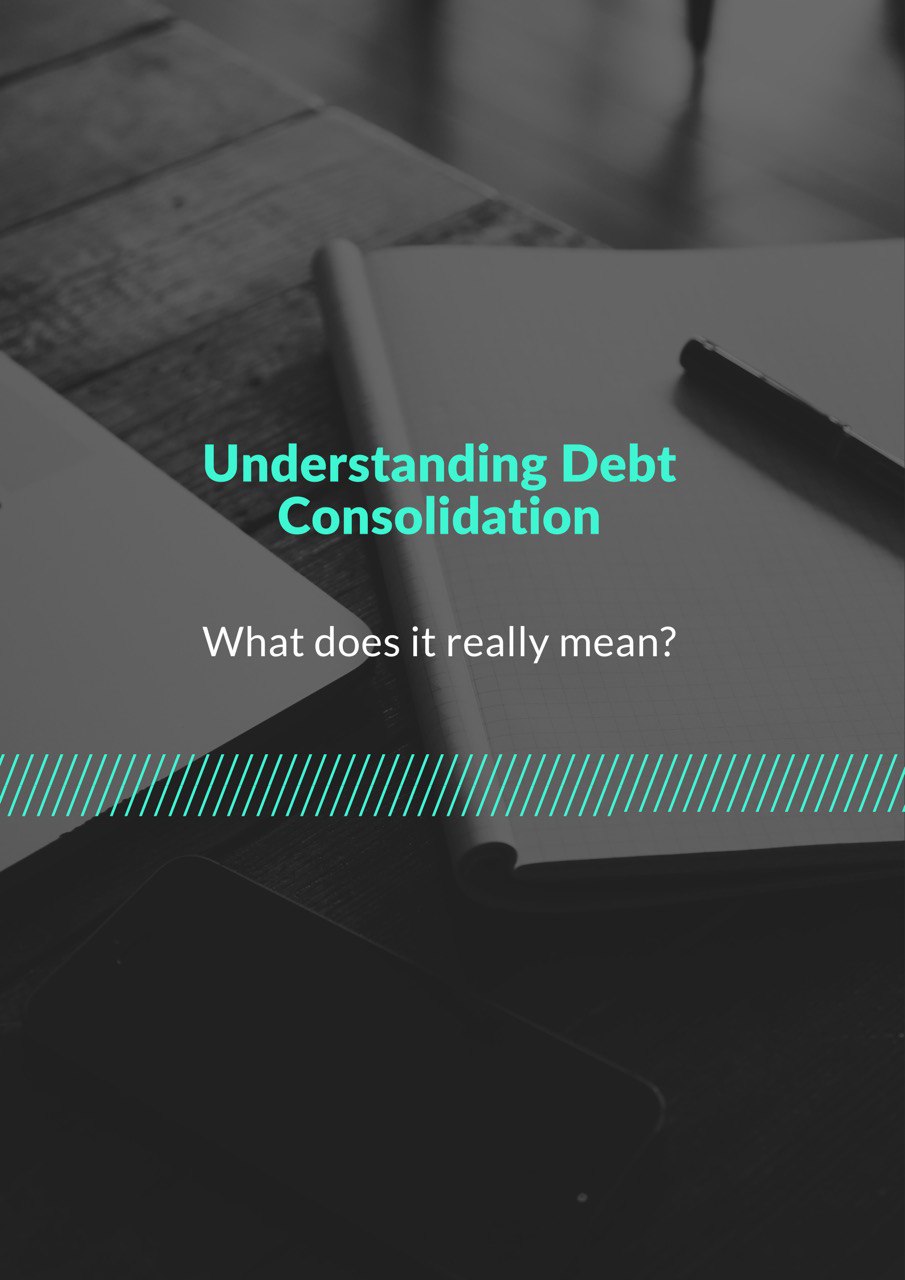Physical Address
60 Ekwema Cres, Layout 460281, Imo
Physical Address
60 Ekwema Cres, Layout 460281, Imo

What do you do when you have piles of bad credit loans with accrued interest to pay off over a long period of time? Have you tried getting a debt consolidation loan?
The digital world has birthed multiple loan vendors and platforms that make it easy to access money when you are in a financial pinch. This can be to sort out certain expenses, like a car payment, a mortgage, or even to start a business.
However, if you’re not cautious, you could find yourself drowning in debt with skyrocketing interest rates due to extended repayments and accumulating additional loans.
A debt consolidation loan could be a viable financial remedy both before and after hitting a financial wall. How does it work? Essentially, you obtain a larger, fresh loan to pay off existing loan debts and accrued interest.
This approach allows you to focus on managing a single loan instead of juggling multiple ones, potentially simplifying your repayment process and reducing overall financial strain.
This is just a simple explanation. Debt consolidation is much more than that. Take the time to understand the terms, compare options from reputable lenders, and assess whether consolidating your debts aligns with your financial goals and circumstances.
Read on as we explore how debt consolidation loans can be a reliable financial decision for you. Debt consolidation loans might just be your option for that bad credit score build-up.

In simple terms, debt consolidation is when you get a new loan or credit card to pay off all your other loans or credit card debts.
Instead of juggling multiple payments, you combine everything into one monthly payment. This can be helpful if the new loan has a lower interest rate or better terms than your current debts.
Also read: Direct Axis Loan: How to Apply
Let’s look at how it works with these points:
To achieve your goals, it’s important to consider a few things:
When you hear of debt consolidation, you might be tempted to think that it’s just another word for taking another loan. While this may sound true because you are taking up a new loan in the actual sense, it is quite different from personal loans.
Debt consolidation is a strategy where you take out a new loan or credit line to pay off existing debts, making it easier to manage payments by combining everything into one. This can lead to savings if the new loan has a lower interest rate.
One common type of loan used for debt consolidation is a personal loan. Personal loans come with a fixed interest rate and a set repayment period, typically ranging from one to seven years.
Also read: African Bank Loan in South Africa: how to Apply and Access Loan
Many lenders offer personal loans specifically tailored for debt consolidation, allowing borrowers to consolidate debts up to a certain amount, often around $50,000.
However, personal loans aren’t limited to debt consolidation. They can serve various purposes, such as financing major purchases or home improvement projects. This versatility makes personal loans a flexible financial tool beyond just consolidating debt.
In essence, while debt consolidation loans are a type of personal loan designed for consolidating debts, personal loans can be used for a wide range of purposes beyond debt management.
As explored, a debt consolidation loan has a major purpose: to help clear all your loan debt while you only have to pay off one. Aside from this, debt consolidation loans come with other benefits that can help you manage your finances more effectively:
Your financial responsibilities are made simpler by consolidating several loans into a single loan. This makes it simpler to manage your budget and prevent missing payments by lowering the number of payments and interest rates you need to keep track of.
You can make monthly savings with a lower interest rate on your consolidation loan. To save more on interest over time, think about utilizing these savings to make extra payments and pay off your debt sooner.
You might be eligible for a reduced interest rate if your credit score has increased, which would further lessen the total amount of interest you pay.
You can get the best rate by looking around for a lender and concentrating on those who have prequalification procedures.
Consolidating your debts can lead to a lower overall monthly payment, especially if the new loan has an extended term. While this can ease your monthly budget, remember that it may increase the total amount paid over the life of the loan.
Also read: Equity Loan Calculator: Understanding How It Works
While applying for a new loan may initially lower your credit score, responsible debt consolidation can improve it over time.
Paying off revolving credit lines like credit cards reduces your credit utilization rate, and making timely payments enhances your creditworthiness.
Debt consolidation can have its downsides and risks, that borrowers should be aware of before proceeding. Let’s consider some potential downsides here:
Debt consolidation loans often come with fees like origination fees, balance transfer fees, closing costs, and annual fees. Understanding and factoring in these costs is crucial to assessing the true affordability of the consolidation loan.
You may end up with a higher interest rate than what you presently have, which would increase your total interest payments if your credit score prevents you from being eligible for competitive rates.
Even with a lower interest rate, extending the repayment timeline through consolidation can result in paying more interest over the life of the loan.
On the flip side, making additional payments beyond the minimum can help mitigate this.
Missing payments on a consolidation loan harms your credit score and may result in penalties. Maintaining a budget and utilizing tools like autopay can help prevent missed payments.
While debt consolidation makes payments easier, it does not deal with the underlying causes of debt. Even after consolidating their debt, debtors may still accrue debt if their spending patterns are not changed.
Also read: Nedbank Business Loan: how to Apply and Get it
Just like the prior point, paying off existing debts can create a false sense of financial freedom, leading to increased spending and potentially more debt accumulation if spending habits aren’t adjusted.
Now that you are familiar with the pros and cons of debt consolidation, it is time to ask the bigger questions: When should you consolidate your loan?
Knowing when to consolidate your debt is crucial for making a smart financial move. Here are some key indicators that it might be the right time to consolidate:
If you have a substantial amount of debt that would take more than a year to pay off, consolidation could be beneficial.
However, if your debt is manageable and can be paid off quickly, the fees and hassle of consolidation may not be worth it.
Analyze your financial behavior and spending patterns. Consolidation should come with a plan to get your finances in better shape if your debt is the result of excessive spending or poor money management. Otherwise, after consolidating your debt, you can wind up with additional debt.
Also read: Edu Loan: How to Apply and Get it
You can be eligible for a consolidation loan with a lower interest rate if your credit score has improved since you took out your initial loans. Over time, this may result in considerable interest payment savings.
Make sure that your monthly loan payments, including the new consolidated payment, are comfortably covered by your present income.
If you are having trouble making your present debt payments, consolidation is not recommended.
After carefully weighing the points above, you may decide that it is beneficial to get a debt consolidation loan. Or not.
Regardless, consolidating your debts in 2025 can be a straightforward process if you follow these steps:
Start by checking your credit score and reports from all major credit bureaus. Correct any errors that could impact your score negatively. Your credit score will influence the loans you qualify for.
Just like a regular bank loan, you have to submit some documents to enable you to apply for these loans.
Speed up your loan application by gathering necessary documents like recent pay stubs, W-2s, bank statements, tax returns, and any other documents required by lenders.
Contact your current lenders for payoff statements. These statements should include your remaining balance and accrued interest since your last payment for each debt you plan to consolidate.
Always have more than one option when you are applying for a loan. Research and compare rates from various lenders, both online and offline.
Consider prequalifying to get an idea of the rates you qualify for without affecting your credit score.
Once you have compared, proceed to choose the lender offering the best terms and complete your loan application. Be prompt in providing any additional information requested by the lender.
Your lender will notify you of the loan’s disbursement details if it is approved. While some lenders might pay off your previous creditors immediately, others might give you the money to handle it on your own.
At this point, you may find yourself wondering if debt consolidation loans are a good option for you. Our verdict? If you have piles of loans seriously affecting your credit score and a good source of income, you can go for it to offset existing loans.
Just as we said in the beginning of this article, debt consolidation loans might just be your option for that bad credit score build-up.
On the other hand, if getting a debt consolidation loan will likely worsen your financial spending, then you might have to weigh the decision carefully.
Stay connected by following us on all platforms for more financial updates. For access to other useful pieces of information, follow us on X or Twitter, @SilicoAfriTech.
Equity Loan Calculator: Understanding How It Works
Understanding Funding Terms: What do equity, debt, and hybrid financing mean?
Payday Loan Business: Find out How Payday Loan Works
Kenya Court Rules that Meta could be Sued Over Moderator Layoffs